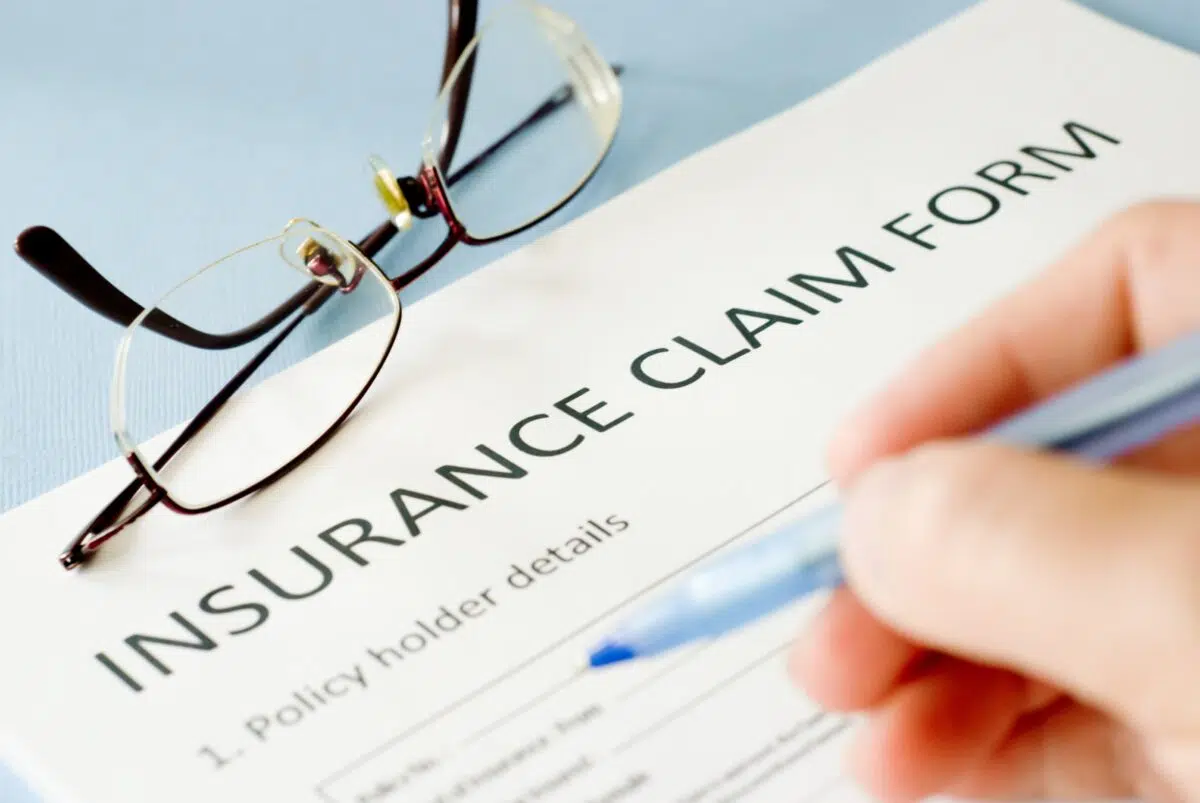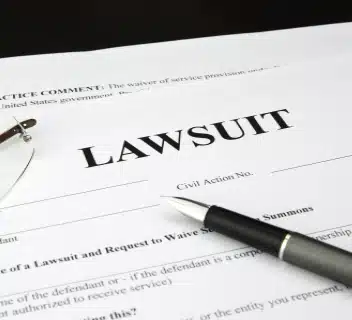Can You Sue Your Insurance Adjuster? What You Need to Know
When you’ve been in a car accident, the aftermath can be overwhelming. Dealing with injuries, property damage, lost wages, and emotional distress is tough enough—but dealing with your insurance company, especially when personal injury claims are involved, can add another layer of frustration.
If you feel like your insurance adjuster is not handling your claim properly, with insurance coverage often being a central issue in these disputes, you might start wondering: Can You Sue Your Insurance Adjuster? In some cases, you may have a claim against a third party, such as another driver’s insurance adjuster or insurer, depending on the circumstances. Insurance companies and adjusters have a legal obligation to act in good faith when handling claims, and if they fail to do so, policyholders may have legal recourse to challenge such failures and seek fair compensation.
This article explores your rights and options when it comes to insurance adjusters, insurance companies, and pursuing the compensation you deserve, while also considering the broader context of the insurance industry.
How Do I Know Whether I Have an Actionable Auto Accident Claim for Damages?
Before even thinking about legal action, you need to determine if you have a valid claim for damages following an auto accident. It is essential to gather all the necessary information, including complete and accurate details, to support your claim. To establish liability and move forward, four core elements must be met:
- Duty of Care – Every driver has a legal duty to drive responsibly and follow traffic laws.
- Breach of Duty – The at-fault party must have breached that duty. This could be through speeding, distracted driving, driving under the influence, or other negligent behavior.
- Causation – The breach must directly cause the accident. For example, a driver texting while driving runs a red light and crashes into your car.
- Damages – You must have suffered actual losses. This includes physical injuries, vehicle damage, lost wages, and emotional distress.
In addition to these elements, insurance companies and their adjusters have a duty of good faith when handling your claim.
Evidence supporting each of these elements is critical to a successful claim.
Example:
If you were rear-ended by a driver who was looking at their phone, and you sustained neck and back injuries requiring physical therapy, you would likely have an actionable claim.
In this situation, you would be entitled to seek fair compensation for your losses.
Should I Be Submitting a Claim to My Insurance Company or Suing?

Conventional wisdom says that after an accident, the policyholder or insured should file a claim with their own insurance company.
In many cases, especially minor accidents, filing a claim is the right first step, and the claim must be properly filed and processed by the insurer.
However, there are important caveats:
- Coverage Limits: Your policy may not cover all your losses. Medical expenses, lost income, and pain and suffering might exceed your policy limits as set forth in your insurance contract.
- Fault-Based Claims: If someone else caused the accident, it might make more sense to sue them (and their insurer) directly. This allows you to pursue full compensation, including damages not covered by your own policy.
- Uninsured/Underinsured Drivers: If the at-fault driver lacks adequate coverage, your uninsured/underinsured motorist policy could apply—but even then, insureds may face challenges if their claims are denied, and your insurer might resist payment.
In some jurisdictions, insurance adjusters may be found to owe a fiduciary duty to policyholders, which can impact your legal options if a dispute arises.
If your claim is unfairly denied, or the insurance company pays less than what is owed, or fails to make a timely payment after your claim is processed. In most states, insurers must handle valid claims promptly and fairly, but the exact timing and payment requirements depend on the policy language and state law.
The Bottom Line:
Submitting a claim is just one path. If the at-fault party has insurance and your damages are significant, a lawsuit may be the best route to recovery.
If your insurer unfairly denies or delays your legitimate claim, you may have grounds for a bad faith claim against the insurance company.
Car Insurance Companies Are Not Your Ally
Insurance companies market themselves as your friend in a crisis. But their financial goals are fundamentally opposed to yours. The primary goal of insurance companies and their adjusters is to minimize payouts on claims.
They make money by collecting premiums and paying out as little as possible on claims. This focus can sometimes lead to bad faith practices when companies act unethically to avoid paying valid claims. In rare cases, gross negligence by an insurance adjuster may also be grounds for legal action.
Common Tactics Used by Insurance Companies:
- Delaying Claims: Hoping you’ll give up or settle for less.
- Denying Claims: Using policy technicalities or claiming insufficient evidence.
- Lowballing Settlements: Offering less than your claim is worth.
- Disputing Medical Treatment: Arguing that procedures were unnecessary or unrelated.
- Using Statements Against You: Adjusters may ask leading questions to twist your words.
Be sure to document all phone calls with the insurance company as part of your evidence.
Why This Matters:
Insurance companies have entire departments dedicated to minimizing payouts, often to the detriment of policyholders. Adjusters are trained to be friendly while working to reduce the value of your claim. Never forget—they’re not on your side.
Policyholders should remain vigilant and continue to pursue a fair settlement, even when faced with these tactics.
Can You Sue Your Insurance Adjuster If They Don’t Pay You Out Properly?

This is a common question. Unfortunately, you typically cannot sue the insurance adjuster personally. Adjusters are employees or agents of the insurance company, usually acting on behalf of the insurer.
If there’s wrongdoing, the insurance company is the party to be held accountable for the adjuster’s actions. However, in rare circumstances, an adjuster may be held personally liable and sued if the adjuster acted negligently or acted in bad faith. In these situations, the adjuster may be sued in their individual capacity.
Public adjusters and the role of a public adjuster are also subject to legal scrutiny. Whether an adjuster can be sued depends on state law, and some courts—including state court and federal court—have considered such cases. Policyholders should consult a lawyer, lawyers, insurance lawyer, or experienced attorney to understand their legal options.
You May Have a Claim for Insurance Bad Faith
When an insurance company acts unreasonably or dishonestly in handling your claim, it may be liable for bad faith. Bad faith insurance refers to situations where insurers unreasonably deny, delay, or dismiss valid claims without a legitimate basis, often using deceptive or unfair practices.
Insurance law governs these cases and provides the legal framework for pursuing claims against insurers. To succeed, it is crucial to gather and present evidence supporting your claim of bad faith, such as documentation of unreasonable conduct or communication with the insurer.
These cases go beyond a simple disagreement—they involve deceptive or unethical behavior.
Examples of Insurance Bad Faith:
- Unreasonably Delaying the Claims Process
- Failing to Properly Investigate the Claim: When the insurer has failed to conduct a thorough and timely investigation into your claim.
- Offering Unreasonably Low Settlements
- Refusing to Defend You (in liability claims): This occurs when the insurance company fails to meet its obligations to defend you as required by your policy.
- Denying Valid Claims Without Justification
Legal Options:
You can potentially sue your insurance company for:
- Breach of Contract – They didn’t uphold their end of the insurance policy.
- Bad Faith – They acted dishonestly or unfairly.
- Negligent Misrepresentation – They misled you during the claims process.
Legal action is taken on behalf of the policyholder to protect your rights and interests. Settlement negotiations are often part of the process, where your attorney works to resolve the dispute before trial. The goal is to secure fair compensation and ensure timely payment for your claim.
These types of lawsuits can result in compensation beyond your original claim, including punitive damages in some states.
What Happens If My Insurance Claim Is Denied or the Offer Feels Like It Is an Underpayment?
A denial or low settlement offer isn’t the end of the road. You have options. After your claim is submitted, it must be properly processed by the insurance company, and you are entitled to a timely payment if your claim is legitimate.
If you believe your claim was wrongly denied or underpaid, you can appeal directly to the insurer. If that doesn’t work, a complaint can be filed with your state’s department of insurance.
If all else fails, filing a lawsuit against the insurer may be necessary to resolve the dispute. Be aware of the statute of limitations for filing a lawsuit, as waiting too long could bar your claim.
1. Request a Detailed Explanation
Ask the insurance company to provide the reasoning behind their decision, including reference to specific policy language.
2. Gather Additional Evidence
Submit supporting documentation such as:
- Medical reports
- Vehicle repair estimates
- Police reports
- Witness statements
3. Request a Reconsideration or Appeal
Many insurers have an internal appeals process. Resubmit your claim with additional support and argue your case clearly.
4. File a Complaint
You can file a complaint with your state’s department of insurance. This often prompts insurers to take a second look at your claim.
5. Pursue Legal Action
If all else fails, consult with an attorney. You may be able to:
- Sue the at-fault party
- Sue your own insurer for breach of contract or bad faith
Taking these steps signals to the insurer that you’re serious about pursuing your rights.
When dealing with insurance claims, policyholders often ask: can you sue your insurance adjuster? Generally speaking, insurance adjusters themselves aren’t personally liable, as they’re acting on behalf of the insurance company.
However, if an adjuster acts negligently or in bad faith—such as intentionally undervaluing claims, delaying the process unreasonably, or denying valid claims—you may have grounds to pursue a lawsuit against the insurer for bad faith practices. In rare situations, and depending on state laws, adjusters may also face personal liability if their misconduct is particularly egregious. Consulting an experienced attorney is the best way to determine if you have legal recourse based on the circumstances of your claim.
Contact 1-800-THE-LAW2 for a Free Consultation
Navigating the insurance claims process can be exhausting and confusing. If you feel you’ve been treated unfairly or if your insurance company is delaying or denying your claim without cause, it’s time to get help.
At 1-800-THE-LAW2, experienced attorneys in our network are available for a free consultation. They can:
- Evaluate whether you have a valid auto accident claim
- Help you determine whether a lawsuit or claim submission is best
- Fight insurance bad faith
- Represent you in negotiations or court
You don’t have to accept a low settlement or a denied claim. Let a professional help you stand up for your rights. Call 1-800-THE-LAW2 today to speak with an attorney and take the first step toward pursuing the compensation you may be entitled to.




